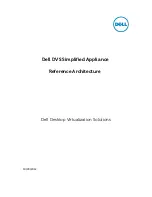
AT-S63 Management Software Features Guide
Section VII: Routing
345
Local Interface
The local interface is used with the enhanced stacking feature. It is also
used with remote management of a switch with a Telnet or SSH client, or a
web browser. The local interface does the following:
With an enhanced stack, it designates on the master switch the
common VLAN and subnet that interconnects the switches of the
stack. The master switch uses the local interface to send out its
broadcast packets when searching for the other switches in a stack.
With remote management, it designates the VLAN and subnet from
where the remote management workstation will access the switch. The
switch uses the local interface to watch for the management packets
from the remote workstation and to send packets back to the remote
station.
For example, assume you wanted to remotely manage a switch that had
four subnets and four interfaces named VLAN4-0, VLAN11-0, VLAN12-0,
and VLAN12-1, and the remote workstation was reaching the switch
through the subnet of the VLAN11-0 interface. You would need to
designate the VLAN11-0 interface as the local interface on the unit.
A switch can have only one local interface.
For background information on remote management of the switch, refer to
the
Starting an AT-S63 Management Session Guide
. For background
information on enhanced stacking, refer to Chapter 3, “Enhanced
Stacking” on page 77.
Summary of Contents for AT-S63
Page 14: ...Figures 14 ...
Page 18: ...Tables 18 ...
Page 28: ...28 Section I Basic Operations ...
Page 58: ...Chapter 1 Overview 58 ...
Page 76: ...Chapter 2 AT 9400Ts Stacks 76 Section I Basic Operations ...
Page 96: ...Chapter 5 MAC Address Table 96 Section I Basic Operations ...
Page 114: ...Chapter 8 Port Mirror 114 Section I Basic Operations ...
Page 116: ...116 Section II Advanced Operations ...
Page 146: ...Chapter 12 Access Control Lists 146 Section II Advanced Operations ...
Page 176: ...Chapter 14 Quality of Service 176 Section II Advanced Operations ...
Page 196: ...196 Section III Snooping Protocols ...
Page 204: ...Chapter 18 Multicast Listener Discovery Snooping 204 Section III Snooping Protocols ...
Page 216: ...Chapter 20 Ethernet Protection Switching Ring Snooping 216 Section III Snooping Protocols ...
Page 218: ...218 Section IV SNMPv3 ...
Page 234: ...234 Section V Spanning Tree Protocols ...
Page 268: ...268 Section VI Virtual LANs ...
Page 306: ...Chapter 27 Protected Ports VLANs 306 Section VI Virtual LANs ...
Page 320: ...320 Section VII Internet Protocol Routing ...
Page 360: ...Chapter 30 BOOTP Relay Agent 360 Section VII Routing ...
Page 370: ...Chapter 31 Virtual Router Redundancy Protocol 370 Section VII Routing ...
Page 372: ...372 Section VIII Port Security ...
Page 402: ...Chapter 33 802 1x Port based Network Access Control 402 Section VIII Port Security ...
Page 404: ...404 Section IX Management Security ...
Page 436: ...Chapter 36 PKI Certificates and SSL 436 Section IX Management Security ...
Page 454: ...Chapter 38 TACACS and RADIUS Protocols 454 Section IX Management Security ...
Page 462: ...Chapter 39 Management Access Control List 462 Section IX Management Security ...
Page 532: ...Appendix D MIB Objects 532 ...
















































